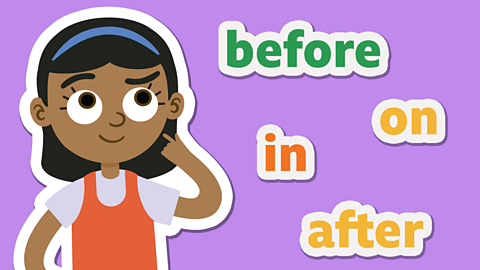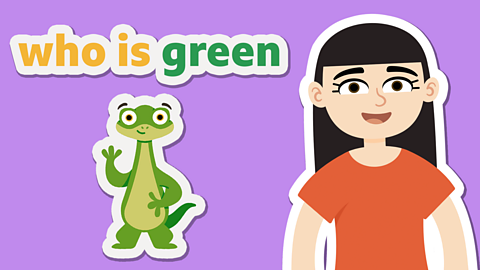What is an adverb?

An adverb is simply a word that describes a verbAction or doing words (run, fly, read, be).
He ate his breakfast quickly.
The word 'quickly' is an adverb as it tells us how he 'ate' (the verb) his breakfast.

Watch: Adverbs
Ah, the adverb train station. If you want to find out about adverbs, there is no better place.
An adverb tells you how something happens.
Here is a train moving "quickly" on the track.
“Quickly” is an adverb here as it describes how fast the train is moving.
And look, here is another train, this one is moving very "slowly" on the track.
“Slowly” is an adverb here as it describes how fast the train is moving.
Oh, here is a group of passengers, waiting "patiently" for their train.
"Patiently" is the word describing the verb "waiting".
Oh dear.
Here is the Gorilla Monster, he wants to play with the train!
Oh, you are playing "nicely" with the train, aren't you?
"Nicely" is the adverb here as it describes how the Gorilla Monster is playing with the train.
"Playing" is the verb, because that is what the Gorilla Monster is doing!
An adverb describes the nature of a verb!
The Gorilla Monster "expertly" launched the train into space!
How to use adverbs?

Adverbs can come before or after a verb.
For example:
He quickly ate his breakfast.
In the sentence above, the adverb 'quickly' appears before the verb 'ate'.
However, this sentence could be rewritten with the adverb after the verb.
He ate his breakfast quickly.

Activity 1
Activity 2
Play our fun English game Crystal Explorers. gamePlay our fun English game Crystal Explorers
Use grammar, punctuation and spelling skills to explore jungles, caves and tombs on your mission!

More on Grammar
Find out more by working through a topic
- count12 of 22

- count13 of 22

- count14 of 22

- count15 of 22
